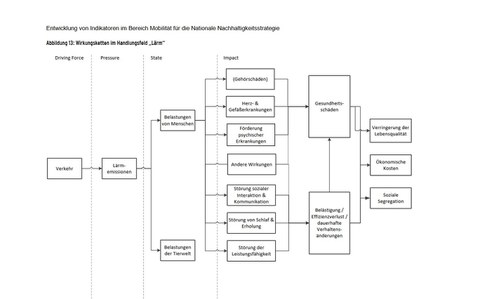Einfluss von Lärm auf psychische Erkrankungen des Menschen
According to the German Environment Agency (Umweltbundesamt) more than half of Germans feel disturbed by road traffic related noise. Constant noise pollution however, for example due to air, road, or rail transport, does not simply constitute a nuisance; it might also trigger complex psychological and physiological stress responses, e.g. mediated through chronical sleep deprivation. In the long term, this can lead to an increased risk of psychological diseases.
So far, only relatively few studies have investigated the relationship between traffic noise and psychological health. The two substudies of this project set out to change this. The first part is based on a deepened analysis of data acquired by the NORAH (Noise-Related Annoyance, Cognition, and Health) study about the risk for diseases, carried out by the TU Dresden Faculty of Medicine. The second substudy will estimate the influence of other disruptive factors on the relationship between traffic noise, psychological diseases and quality of life, based on the currently ongoing LIFE-study at Leipzig University.
The Chair of Transport Ecology will link the survey data from the LIFE-study with address-specific data about traffic noise and air pollutants.
The interdiciplinary team carrying out the study combines university expertise in the fields of epidemiology and public health, acoustics and psychiatry. Additionally, an experienced acoustic engineering office is also involved. The project is expected to deliver new findings on the relationship between constant traffic noise pollution and psychological diseases, which can genereate an appraoch for preventive measures.
FINANCINGER
The project is funded by the German Environment Agency (Umweltbundesamt).
LEADERSHIP
- Univ.-Prof. Dr. Med. Andreas Seidler (Carl Gustav Carus Faculty of Medicine, TU Dresden)
- subproject: Prof. Dr. Udo Becker
RESEARCHERS
- Dipl.-Ing. Wolfram Schmidt
TERM
- 09/2017 to 12/2020

